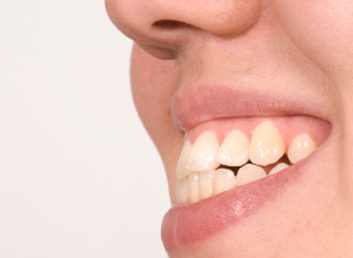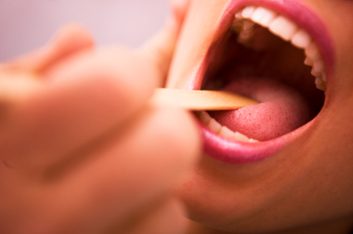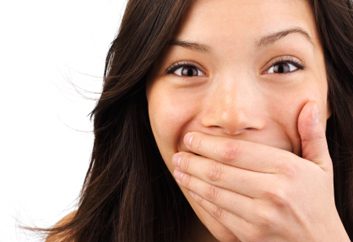
Smoking and your oral health
After viewing countless anti-smoking signs, pamphlets and commercials-even those graphic warnings printed right on a package of cigarettes-practically everyone knows that smoking is bad for your body. Smoking tobacco can lead to severe health problems, such as cancer, lung disease and heart disease. But did you ever consider the effects smoking has on your mouth? Every puff of smoke that gets into your body starts by passing your lips, tongue, teeth and gums. Here are six ways that smoking impacts your oral health.

1. Oral cancer
Smoking or chewing tobacco can contribute to cancers of your mouth, tongue, lips, gums and throat. Health Canada estimated that there would be 3,400 new cases of oral cancer last year, with men accounting for more than half of that number.
“If you’re a smoker and a drinker, your risks are very high,” says Mary Bertone, a dental hygienist at the University of Manitoba’s Centre for Community Oral Health. Unfortunately, in many cases oral cancer isn’t discovered until it’s advanced. “That is the issue with the survival rate [for] oral cancer-it’s discovered too late,” Bertone says. More than 1,000 Canadians will die from oral cancer this year alone.

2. Gum disease
Smoking abuses your gums two different ways. First, you are likely to produce more bacterial plaque in your mouth, which puts your gums under steady attack. Second, smokers have lower levels of oxygen in their blood, which slows healing. As a result, when your gums become infected, your body is less able to deal with it. Compared to non-smokers, gum disease progresses at a more rapid rate in people who smoke.

3. Cavities
Considering the increased plaque and gum problems caused by smoking, it’s a no-brainer that you’re also at higher risk for tooth decay. If you smoke, you’re putting your mouth at risk for three times as many cavities as those who don’t.

4. Bad breath
It’s no surprise that smokers have bad breath-and it’s not the kind you can zap with a quick breath mint. More than 4,000 chemicals pass through your oral cavity every time you smoke and many of them end up collecting on the surfaces inside your mouth. Smoking also contributes to bad breath by drying out your mouth, which can trigger gum infection and even irritate your sinuses, resulting in post-nasal drip.

5. Stained teeth
A smoker’s mouth is not a pretty mouth, thanks to the unattractive yellow stains that tar and nicotine leave on your teeth. Over time, this discolouration can seep into tiny cracks in the tooth enamel. That means that after several years of smoking, the staining may well be permanent.

6. Altered taste and smell
When you smoke regularly, your senses of taste and smell may be a bit “off.” Not only does that interfere with your enjoyment of food, it may actually lead you to add too much salt or sugar when you’re eating, in an attempt to make the taste stronger. Research shows about one in five smokers have a less precise sense of taste and smell. Fortunately, the effect may be reversible if you kick the habit.

Kicking the habit
So you’re convinced that it’s time to kick the habit, but you just can’t quit? The key message is to keep trying. “It usually takes a few times before you’re successful,” says Bertone, adding: “There are a lot of resources.” These include products such as the nicotine patch, medication to reduce cravings and withdrawal symptoms, and health agencies that can provide support. Your dental health care provider may also be able to provide you with more information. “If you’ve just had your dental cleaning it’s a great time to quit, because your mouth feels fresh and clean,” says Bertone.
Related:
• “How I quit smoking”
• Top 10 causes of bad breath
• Quiz: How much do you know about your mouth?
